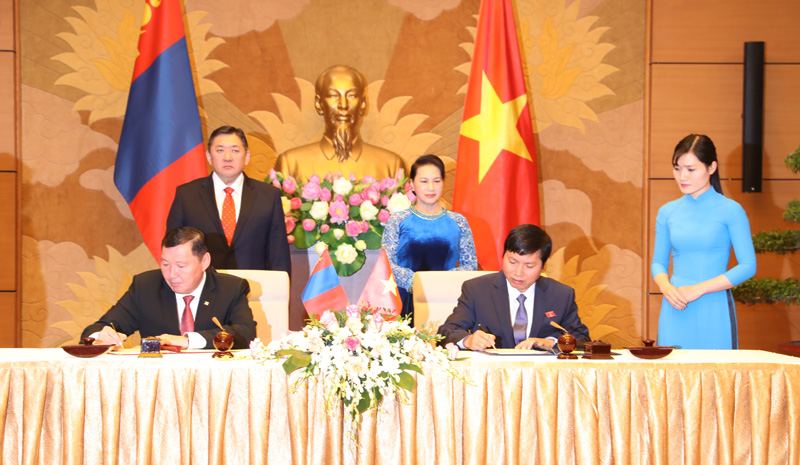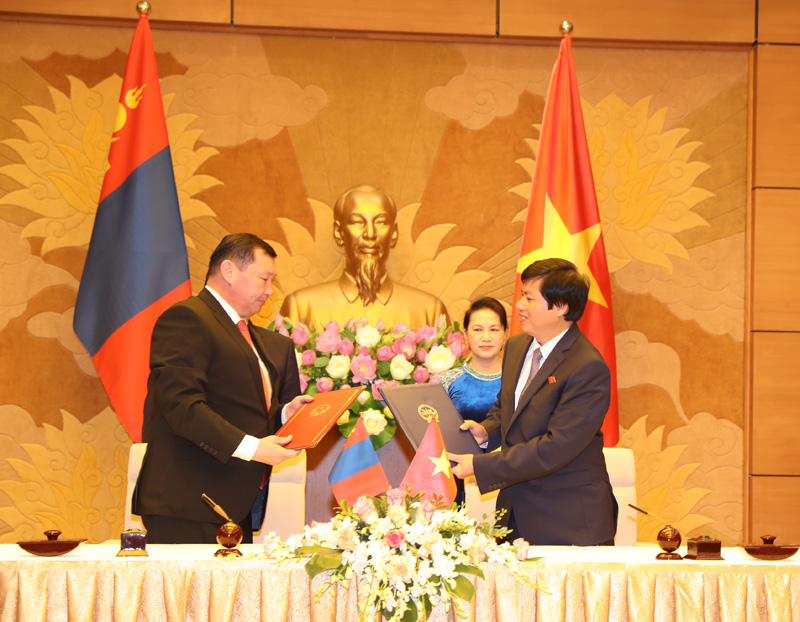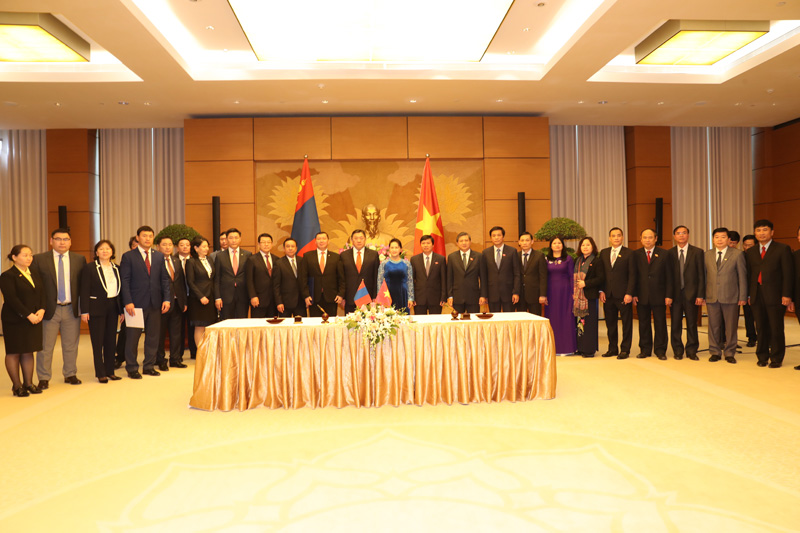
(HBO) – A cooperation agreement between Hoa Binh province and the Mongolian province of Tuv was signed in Hanoi during the recent visit to Vietnam by Chairman of the Parliament of Mongolia Miyegombo Enkhbold. The signing took place with the approval in principle and witness of the two parliaments’ leaders.

Tran
Dang Ninh, Vice Secretary of the Hoa Binh province Party Committee, Chairman of
the provincial People’s Council of Hoa Binh and head of the provincial National
Assembly delegation, and Tsedevdorjiin Enkhbat, Chairman of People’s Council of
Tuv province (Mongolia) signe an agreement for cooperation between the two
sides.
The agreement focuses
on strengthening the friendship and information exchanges between the two
sides; fostering cooperation in agriculture, including animal husbandry and cultivation;
and increase the exchange of delegations at levels to share experience in the
two provinces’ strong areas.
Under the deal, the two sides agreed to develop relationships
among local universities and institutes as well as student exchange programmes,
particularly in agriculture, while organising conferences and seminars for
experience sharing in areas of mutual interest.
The agreement also covers partnership in science-technology,
healthcare, culture, sports and people-to-people exchange.


A
view of the signing ceremony.
In the spirit of openness, frankness and mutual understanding,
leaders of Hoa Binh and Tuv provinces tasked their respective people’s council
offices as contact units for the implementation of the agreement at the signing
ceremony. They affirmed their determination to effectively carry out the
agreement, dedicating to the successful implementation of the cooperation
between the two countries’ parliaments from 2018 to 2022./.
Hoa Binh province is undergoing a dynamic transformation amid Vietnam’s national digital transition. Building on Poliburo’s Resolution No. 57-NQ/TW on breakthroughs in science, technology, innovation, and national digital transformation, the province has rolled out a wide range of practical action plans. A standout initiative is the "Digital Literacy for All” movement, an effort to ensure that no one is left behind in the digital era.
Hoa Binh province is undergoing a dynamic transformation in the wake of the national digital transformation movement. Building on Resolution No. 57-NQ/TW of the Politburo on breakthroughs in science, technology, innovation, and national digital transformation, the province has implemented a wide range of practical action plans. A standout initiative is the "Digital Literacy for All” movement ambitious effort to ensure that no one is left behind in the digital age.
With a spirit of unity and proactive problem-solving, the Party Committee, the government and the people of Dong Lai Commune (Tan Lac District) have made great strides in implementing the resolutions of the 24th Party Congress of the commune for the 2020 - 2025 term. Focusing on leadership and practical actions, the commune has brought the Party’s resolutions into daily life, creating strong impacts and pushing the local development forward.
Amid the nationwide push for digital transformation, young people in Hoa Binh Province are stepping up as dynamic pioneers, applying technology to enhance Youth Union operations and expand the reach of youth-led initiatives. Through creativity and adaptability, Youth Union organizations at all levels have introduced a series of practical solutions, contributing to modern governance and community development.
In recent years, An Nghia commune, located in Lac Son district, has stepped up administrative reform, focusing on improving the quality and efficiency of its single-window service unit for receiving and processing administrative procedures. These improvements have helped create favourable conditions for local residents and organisations to handle administrative procedures, contributing to the commune’s broader socio-economic development.
The Prime Minister-approved master plan to develop the multi-use value of forests ecosystems through 2030, with a vision to 2050, aims to improve the management and sustainable use of forest resources, create jobs, increase incomes, and improve the living standards of ethnic minorities, people in mountainous and remote areas, forest workers and those living near forests.





